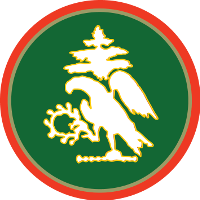-
Accesări: 772
Visualizing Scriptoria: Mapping Sites of Manuscript Production in Medieval Iceland
-
Accesări: 404
Visualising Urban Geographies is a project that provides mapping tools for historians. It enables them to use digitized and geo-referenced maps in conjunction with historical information based on either addresses or districts. This spatial dimension enriches historical understanding and analysis, and can also be applied to other subject areas. The focus on Edinburgh is deliberate: to explore the potential of the mapping tools where there is available data and a wide range of suitable maps.
-
Accesări: 593
HASTAC ("haystack") is a network of individuals and institutions inspired by the possibilities that new technologies offer us for shaping how we learn, teach, communicate, create, and organize our local and global communities. We are motivated by the conviction that the digital era provides rich opportunities for informal and formal learning and for collaborative, networked research that extends across traditional disciplines, across the boundaries of academe and community, across the "two cultures" of humanism and technology, across the divide of thinking versus making, and across social strata and national borders.
-
Accesări: 596
Voting America encourages users to think about US political history by allowing two types of comparison. Animations of a single type of map--say, measuring the winner of presidential elections at the county level--allow for comparisons across time.
-
Accesări: 509
Annotating Joyce’s Ulysses upon current and contemporary maps of Dublin. WALKING ULYSSES is designed to represent, through an exploration of each of the senses, the experience of living in Dublin on a typical day around the turn of the twentieth century. Our map narrates the journey of Stephen Dedalus and Leopold Bloom over the course of a single day, paralleling the progress of James Joyce’s Ulysses, traversing, chronologically, the eighteen chapters of the book. It’s designed to enhance the reader’s vicarious journey through the pages of Ulysses as mediated through the senses of its principal characters.
-
Accesări: 570
Open Context is a free, open access resource for the electronic publication of primary field research from archaeology and related disciplines. It emerged as a means for scholars and students to easily find and reuse content created by others, which are key to advancing research and education. Open Context's technologies focus on ease of use, open licensing frameworks, informal data integration and, most importantly, data portability. Currently, we are building up an extensive and diverse body of content and exploring different ways of visualizing and remixing it. Please check in frequently for updates and, as always, feel free to drop us a line with comments or suggestions.

